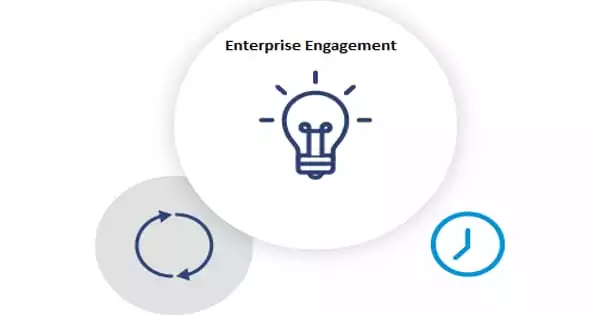Gen Z is dissatisfied with the social media platforms they grew up with, so they are creating their own. Tagg, a “social branding” app for creative adolescents and twenty-somethings, has raised $2 million in a seed round led by Biz Stone, Facebook’s former VP of International Growth Ed Baker, TripAdvisor founder Stephen Kaufer, Pillar VC, and others. Tagg, which was founded by recent Brown University and Rhode Island School of Design graduates, is currently in private beta, with thousands of members and thousands more on the waiting list. It is similar to a link-in-bio service, but with a social component that encourages young creatives to create, interacts, and form connections.
“In the digital era, the more real your brand is, the more genuine your relationships will be.” Current social platforms are inadequate because they are not designed for the “changing convergence of branding and connection,” according to the business. “Tagg is creating and cultivating an atmosphere that allows for complete creative expression – no limitations, no shame.” You may pick among five profile skins when you sign up for the app, depending on what you want to do with it (for example, a social profile or a profile to promote your art and network). You may then personalize your profile, follow people, and submit material just as you would on any other app. On the other hand, there is no like count on Tagg postings, which is a deliberate design choice.
“We don’t have likes — only comments, sharing, and views,” co-founder Victor Lolo told TechCrunch, “Because we want our creatives to focus on being their favorite self with no stigma.” Users do not always desire like counts, especially among the Gen Z population for whom Tagg designed, because they realize it might push them to compare themselves to others superficially. Senators Ed Markey (D-MA) and Richard Blumenthal (D-CT) have sponsored legislation to prohibit the use of like counts for social media users under the age of 16, citing concerns that it might impair teen mental health.

At first sight, Tagg’s “social branding” marketing strategy may appear counter-intuitive – the notion of branding may sound like you are placing yourself in a box. Tagg, on the other hand, is designed to push its users out of their comfort zones. Even while users design their profiles using predefined skins, these are merely ideas; users may start from scratch and establish their own categories to arrange their material. “The beauty of profiles is that they may take on any appearance. “We wanted to go away from the typical, limited, cookie-cutter profiles that many social applications have,” Loolo stated, “since as Gen Z-ers, we value freedom of expression and originality a lot.” “We wanted to create a nice, user-friendly middle ground between a regular profile and a blank page, which would be difficult for many people, so we opted with profile skins,” says the team.
Loolo’s own experience as a Brown football player influenced Tagg, who found it difficult to define himself outside of his status as a student-athlete. That is what drove him and his co-founders Blessing Ubani and Sophie Chen to create Tagg. “People are categorized in some way. Let us pretend I am a person who makes TikTok culinary videos — I am the cooking video man. Loolo told TechCrunch, “But I could like video games and other stuff.” “We wanted to move away from that and give these artists the freedom to construct more comprehensive images of them.”
Users get points for interacting with Tagg, and while these points are presently only a vanity feature, Loolo sees this as a possible future for the app. “Although Tagg is not yet decentralized or tokenized, our platform’s ideals reflect web3’s values,” Loolo remarked. “One of our aims is to assist our creatives realize that being directly compensated for their content sharing and community involvement, rather than underpaying creator funds and having inconsistent brand partnerships, is the solution to the difficulties of the creator economy.”
Tagg may evolve toward allowing users to earn a valuable coin or token in the future. For the time being, Tagg is concentrating on onboarding and attracting new customers from its waiting list. The team went to the Bay Area after graduating from college in 2020, where they have continued to work on the app. The app is expanding its crew because of its recent financing. Steven Fang, a 15-year engineering veteran, has joined Tagg as a CTO and co-founder.
















